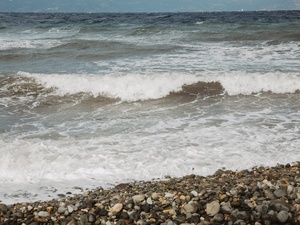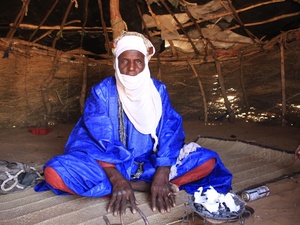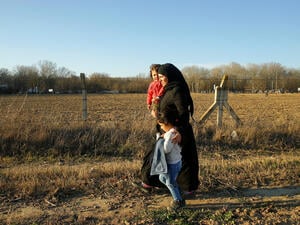Somalis in Djibouti on the increase
Somalis in Djibouti on the increase
Growing numbers of Somali asylum seekers and migrants are fleeing to Djibouti in what may become a new migration route from war-ravaged Somalia to Djibouti and on to the Middle East.
In 2007, a total of 700 Somali asylum seekers fled to Djibouti. So far this year, more than 550 asylum seekers and migrants have already crossed from north-west Somalia, also known as Somaliland, into Djibouti - 400 of them during the month of January. At the port town of Obock, north of the Djibouti capital, the number of people leaving the port by small boats has also risen steadily according to port authorities.
During a recent visit to Loyada, a border crossing between Somaliland and Djibouti, border authorities told a joint team of UNHCR and government officials that there is a continuous flow of asylum seekers who group in the no-man's land as they seek to gain entry into Djibouti. Previously, some asylum seekers would make a treacherous journey around the hilly region separating Djibouti and Somaliland to avoid being stranded at the border for days. UNHCR and government authorities have now intervened with border officials to request that the Somali asylum seekers be allowed entry in accordance with Djibouti's international obligations. The government of Djibouti and UNHCR are now looking at possibilities of setting up a reception facility close to the border to receive and screen the asylum seekers before transferring them to Ali Addeh camp which is sheltering some 7,000 refugees. Some 3,500 of these refugees are from south and central Somalia with around 2,800 from Somaliland.
Border authorities also indicate that smugglers have begun to roam the no-man's land offering to take the mixed group of asylum seekers and migrants by boat from an area around the Somaliland town of Zeila, off the coast of the Gulf of Aden, directly to Yemen or to the north of Djibouti before arranging their crossing to Yemen.
Many of those coming into Djibouti are from the south/central Somalia, including the Somali capital, Mogadishu, Baidoa and adjacent areas, as well as Beletweyne. Many say they have spent several months in other towns such as Galcayo, Bossasso and Hargeisa before making their way to Djibouti. Others say they have lived in settlements for displaced people inside Somalia but have not received adequate assistance and have had no means of livelihood. Those crossing the border are mainly young single people, some of whom are hoping to continue to Yemen.
UNHCR continues to call for increased action to save lives in the Gulf of Aden and other waters. In 2007 alone, more than 29,500 people arrived on the shores of Yemen while over 1,400 died or remained missing - presumed dead - while making the hazardous journey.









